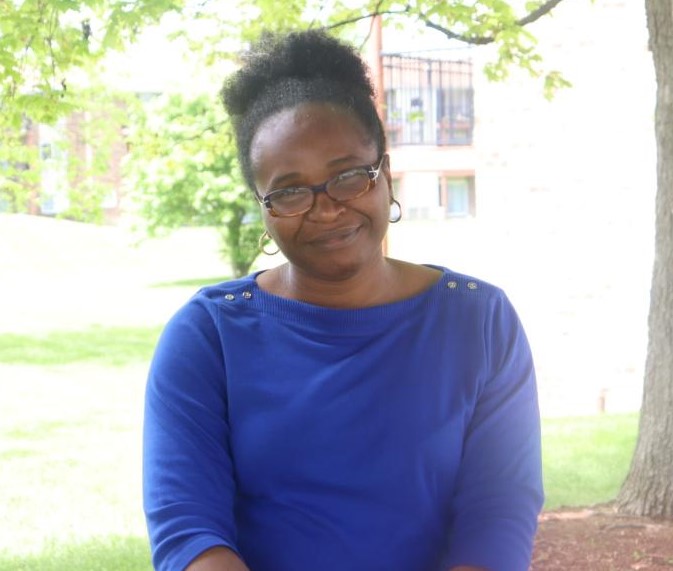Nigerian engineering student works in Detroit to improve green infrastructure and environmental sustainability
Civil and environmental engineering Ph.D. student Kate Ekhator knew she needed a change. A master's graduate in civil engineering from the University of Ibadan in Nigeria, she had been working as a health, safety and environment officer at an oil and gas company for 15 years.
"I was doing the same thing day in and day out and I felt like I could do more, so I decided to apply for my graduated studies," says Ekhator. "I've always been interested in environmental engineering, specifically waste water management, water resources, basically anything that has to do with the environment." Ekhator applied to some universities in Nigeria, but ultimately chose to come to Wayne State University in 2018.

"So far I've had a fantastic experience," says Ekhator. "I really met the right people when I came here and have learned a lot in this short time. I like the fact that we're in the city and there's so many other people from different nationalities."
After being accepted to Wayne State, Ekhator explained her interest in water resource management to Professor Carol Miller in the Department of Civil and Environmental Engineering and director of Heathy Urban Waters , who got her involved in the Transformative Research in Urban Sustainability Training (T-RUST) program. T-RUST brings together graduate students from various disciplines to collaborate and solve urban sustainability issues.
"The wonderful and beautiful thing about this program is that they train graduate students to collaborate with other disciplines," says Ekhator. "They combine the disciplines. Oftentimes, you see an engineer and a social scientist may be trying to solve a problem, but they have different solutions. The engineer may have a solution that they are unsure how to implement in a practical way, and that's where the social scientist comes in.
"The environment is beyond just science and engineering. You can have the economics, you can have the anthropology, you can have the communications, just to mention a few. This is a broad collection of knowledge and we are given the opportunity of different ways to tackle problems in the community. We're collaborating and learning from each other, so when we get out there, we don't just look at it from an engineering perspective, but also how these other fields would solve it as well. At the end of the day we are able to create solutions that are sustainable."
Ekhator says she is working with students from anthropology, economics, biology, communication and urban planning, among others.
"The training gives you the chance to meet professionals in the field, not just professors and faculty members, but people who are on the ground," says Ekhator. "One of the projects I worked on recently was Reroot Detroit, who are redeveloping vacant lands through green infrastructure by planting trees. Our group utilized ideas from collaborating with different discipline to submit a grant proposal at the recently concluded WSU STEAM challenge."
One of the first projects Ekhator worked on involved the inspection of homes that had basement flooding problems, a project conducted by Healthy Urban Waters. "This has helped with my focus of finding solutions to the problems in Detroit," she says. "My most exciting moments are when I meet residents of the city of Detroit and other stakeholders and discuss how best the city's problems can be solved.
"As engineers, we don't really work with other people often, we tend to work on things alone in my experience. So, this is a big opportunity for me to be able to work with people and learn from them. I now I have an idea of how other disciplines think of things, and it helps me with my own projects. I have insight on how the residents of the city think about engineering projects through my exposure to urban anthropology, how cost issues are very important when choosing a project and a system thinking when you look at how organisms interact with the environment".
Ekhator says her long term goal is to characterize stormwater generated within the city of Detroit with a view to understanding how it is contaminated and solving the problem of contamination.
"Wayne State is at the forefront of green infrastructure," says Ekhator. "They're at the forefront of sustainability. I have been fortunate to work with fantastic people, and I look forward to this opportunity for as long as it lasts."
By Jacob Stocking, OIP communications associate
The Office of International Programs leads Wayne State's global engagement by creating opportunities that foster international education and research, facilitate the exchange of individuals and ideas that promote global competencies and citizenship, and provide resources that support the expansion of the university's global agenda. Follow us @WayneOIP.